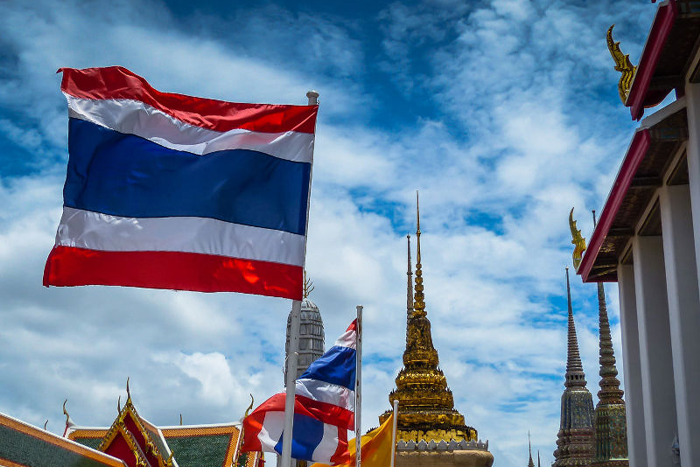Chairman’s Note
Private and Confidential
For SIIA Corporate Members and Advisors
March 2024
Indonesia’s Elections Outcome
I write to you as our corporate member and friend to share some perspectives on the outcome of the presidential and legislative Indonesian elections held in February. The elections came at an important time for Indonesia, the largest economy in ASEAN, as the change in leadership is expected to mark a transition in Indonesia’s political and economic landscape after a decade under Jokowi.
As confirmed officially on 20 March, the candidate pair backed by incumbent President Joko Widodo (Jokowi) — Prabowo Subianto and Gibran Rakabuming Raka, Jokowi’s son — won by a large margin at 58.6%. This eliminated the need for a second run-off despite previously anticipated. In this note, I consider the policy continuity and stability of the incoming Prabowo-Gibran government.
As I share these viewpoints, there are three important caveats to highlight. Firstly, the situation is still fluid in this early stage of the post-election period. Secondly, these perspectives are an aggregate of insights from speaking to only a limited number of observers, who are outsiders to the political or election process. Lastly, as a think tank, the SIIA aims to engage with representatives of the incoming government after its official inauguration in October. I kindly request that this note be kept confidential, as it primarily reflects the perspectives of those consulted rather than my personal opinions.
1. Electoral Fraud: While the decisive outcome has been met with a sense of relief, especially from the business community who prefers status quo and stability, many have expressed discontent over the electoral processes. Opposition parties including PDI-P (Indonesian Democratic Party – Struggle) are discussing plans to contest the outcome based on election fraud allegations against Prabowo-Gibran pair. However, most are still treading carefully as their share of power and Cabinet posts will be at stake and the chance of overturning the results is slim. Notwithstanding that, Anies Baswedan–Muhaimin Iskandar pair registered a dispute with the Constitutional Court the morning after the official announcement, and it remains to be seen whether others will follow suit.
2. Coalition Building: As Prabowo’s alliance did not clinch a legislative majority, Prabowo has committed to co-opting rival parties to form a ‘grand coalition’. Should this be formed, there would be virtually no opposition to the administration — a system believed to encourage political stability in the country, where laws and bills can be easily passed in parliament. Negotiations are underway to achieve a strong majority, but some of the dynamics have changed and will continue to evolve as opposition parties consider plans to contest the electoral outcome. The largest legislative winner, PDI-P, has said it will not join the government and instead form the opposition. Nevertheless, building a coalition that can muster enough votes remains likely, as most will want to have a share of power and Cabinet posts.
3. Jokowi Effect: After a decade of rule, Jokowi continues to hold sway over Indonesia, boosting Prabowo-Gibran ticket with his endorsement. However, while he will seek to entrench his influence by appointing his trusted allies to ministerial posts in the incoming Cabinet, Prabowo’s character and temperament may prevent Jokowi’s ability to command and convince. While his son Gibran will be the vice-president, that role is ill-defined and can be sidelined. There is also a question of balance within the incoming Prabowo-Gibran team, which may risk splitting the Cabinet unless a compromise between Prabowo and Gibran and within the coalition can be assembled.
4. Priorities Competing for Budget: On top of his ambition in modernising the military, Prabowo’s free-school-meal programme is a cornerstone of his campaign. The price tags are expected to be so hefty that they will add to the stresses on Indonesia’s finances. Prabowo’s promise of continuity on infrastructure, including for the new capital Nusantara (approximately USD 35 billion), will be at stake. Not only will Nusantara plans have to be delayed, but he will also have to consider cutting fuel and gas subsidies, which may create resentment towards Prabowo. The next administration will face a challenging time juggling these competing priorities while also trying to achieve Prabowo’s ambition for 8% growth in the next 5 years.
5. Difference in Policy Undertone: Despite his campaign for continuity, Prabowo’s background would make for a considerably different policy undertone and focus from Jokowi. On the one hand, Prabowo’s nationalistic tendencies and focus on self-sufficiency would naturally mean continuity for downstreaming policy for key export commodities. However, Prabowo is expected to be more active in foreign relations, unlike Jokowi who tended to be more introverted in the international scene. Additionally, Prabowo’s family and their business interests are also likely to shape his presidency. Given that Finance Minister Sri Mulyani might not continue her role, owing to past rocky relations with Prabowo, Prabowo’s brother-in-law who was a former Governor of Bank Indonesia may influence Prabowo’s choice of finance minister and fiscal policies.
6. Deal maker?: There is ongoing speculation on who will be the deal maker for the new president; much as Luhut Binsar Pandjaitan was for President Jokowi. Several may claim to have that access, and some will look to members of the Prabowo family. But it is too early to say. In the coming months as the President–Vice President coalition takes shape it may be clearer.
I hope these observations might be of some interest to you. If you have a particular interest or perspective to share, I would be glad to hear from you. Some kindly noticed that our analysis of the post-election politics and deal-making has been accurate. But it is early in the post-election phase and the situation will continue to evolve going forward.
Yours sincerely,

Simon Tay
Chairman
![[Premium] Chairman’s Note: Indonesia’s Elections Outcome](https://siiaonline.org/wp-content/uploads/2017/02/iStock_000027646494Small-400px.jpg)



